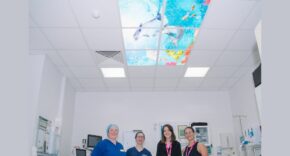
The intersection of field service work and Vehicle Reimbursement Programs (VRPs) plays a pivotal role in maintaining efficient operations and achieving customer satisfaction. Field service tasks, including installing, maintaining, repairing, and calibrating medical equipment, ensure that devices comply with regulatory standards and function optimally. Furthermore, field sales representatives are crucial in fostering relationships with healthcare professionals and recommending suitable medical devices and solutions.
VRPs, like those offered by Cardata, are instrumental in supporting the travel needs of field service technicians and sales representatives, offering reimbursements for business-related travel expenses such as mileage, fuel, and maintenance. This article explores the significance of VRPs in the medical device industry, highlighting their role in facilitating customizable solutions that simplify mileage tracking and reimbursement processes. By seamlessly integrating VRPs into field team operations, companies can enhance employee satisfaction, drive revenue growth, and maintain a competitive edge.
Understanding Field Service Work
Field service work encompasses on-site installation, service, or maintenance activities at customer locations, involving technicians traveling to perform essential tasks. This work is vital across various industries, including medical devices, manufacturing, and more, playing a critical role in customer satisfaction, minimizing downtime, and optimizing asset performance.
Field service and sales are integral to ensuring product performance and driving revenue in the medical device industry. Technicians ensure medical devices function correctly and meet regulatory standards, while sales representatives build relationships with healthcare professionals to meet their equipment needs. The medical device industry, holding a significant global market share, relies heavily on these roles to maintain its impressive standing.
The Advantages of Field Service Software
Field service software offers numerous benefits, including mobility optimization and improved customer service. VRP software is a key tool for field teams, enabling efficient mileage tracking and reimbursement. This software enhances technician productivity, service response times, and customer satisfaction, facilitating data-driven decision-making and continuous improvement.
Vehicle Reimbursement Programs as Essential Tools
VRPs compensate employees for using their personal vehicles for work, covering expenses like fuel, maintenance, and depreciation. These programs are vital for field service technicians and sales representatives, ensuring fair compensation and supporting cost management by accurately tracking and reimbursing work-related travel expenses.
Medical Devices and VRPs
In the medical device sector, VRPs are increasingly important, reimbursing technicians and sales representatives for travel to customer sites. By offering fair VRPs, companies can attract and retain top talent, ensuring effective job performance and high-quality service delivery. The choice between company-owned vehicle fleets and VRPs depends on specific needs. While fleets offer control over maintenance and branding, they require significant investment and ongoing expenses. VRPs, on the other hand, offer a cost-effective and flexible solution, especially when specialty vehicles are not required, reducing upfront costs and administrative overhead.
The Downfalls of Taxable Car Allowances
Compared to tax-free VRPs, taxable car allowances present several disadvantages, including reduced take-home pay for employees due to taxes and increased administrative burden. VRPs offer a more favorable compensation arrangement, simplifying tax compliance and administration for employers.
Cardata’s Approach to VRPs
Cardata exemplifies a comprehensive approach to VRPs, focusing on customization, efficiency, and simplicity. By tailoring programs to client needs, simplifying mileage data capture with a mobile app, and facilitating direct reimbursement payments, Cardata optimizes vehicle reimbursement processes for clients, driving employee satisfaction and business success.
In conclusion, VRPs are indispensable in the field service and medical device industries, providing customizable, efficient mileage tracking and reimbursement solutions. By integrating these programs into their operations, companies can ensure fair employee compensation, manage costs effectively, and sustain a competitive advantage in the industry.












